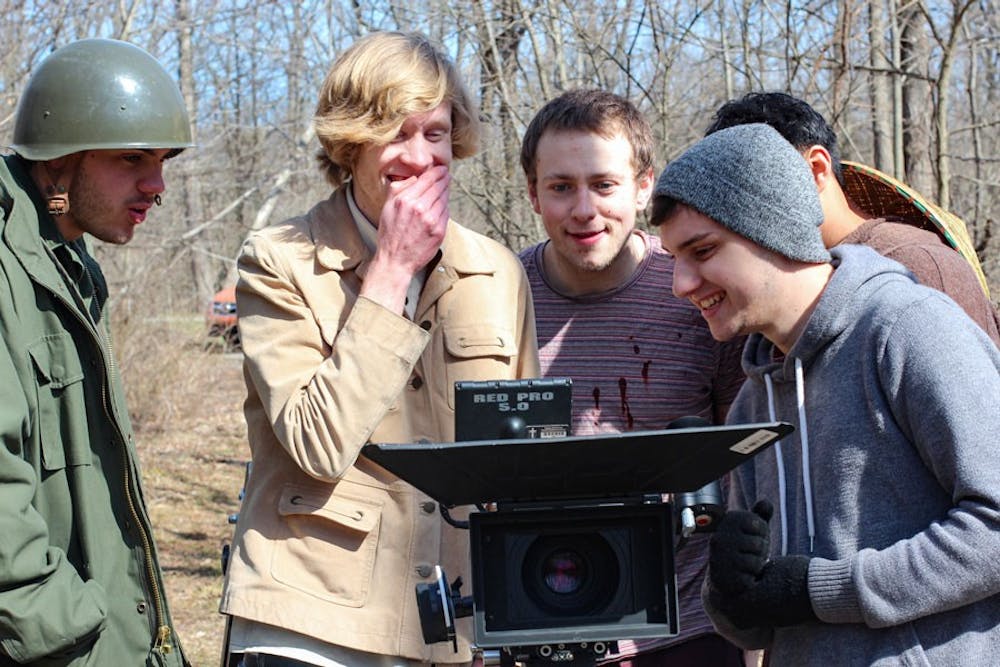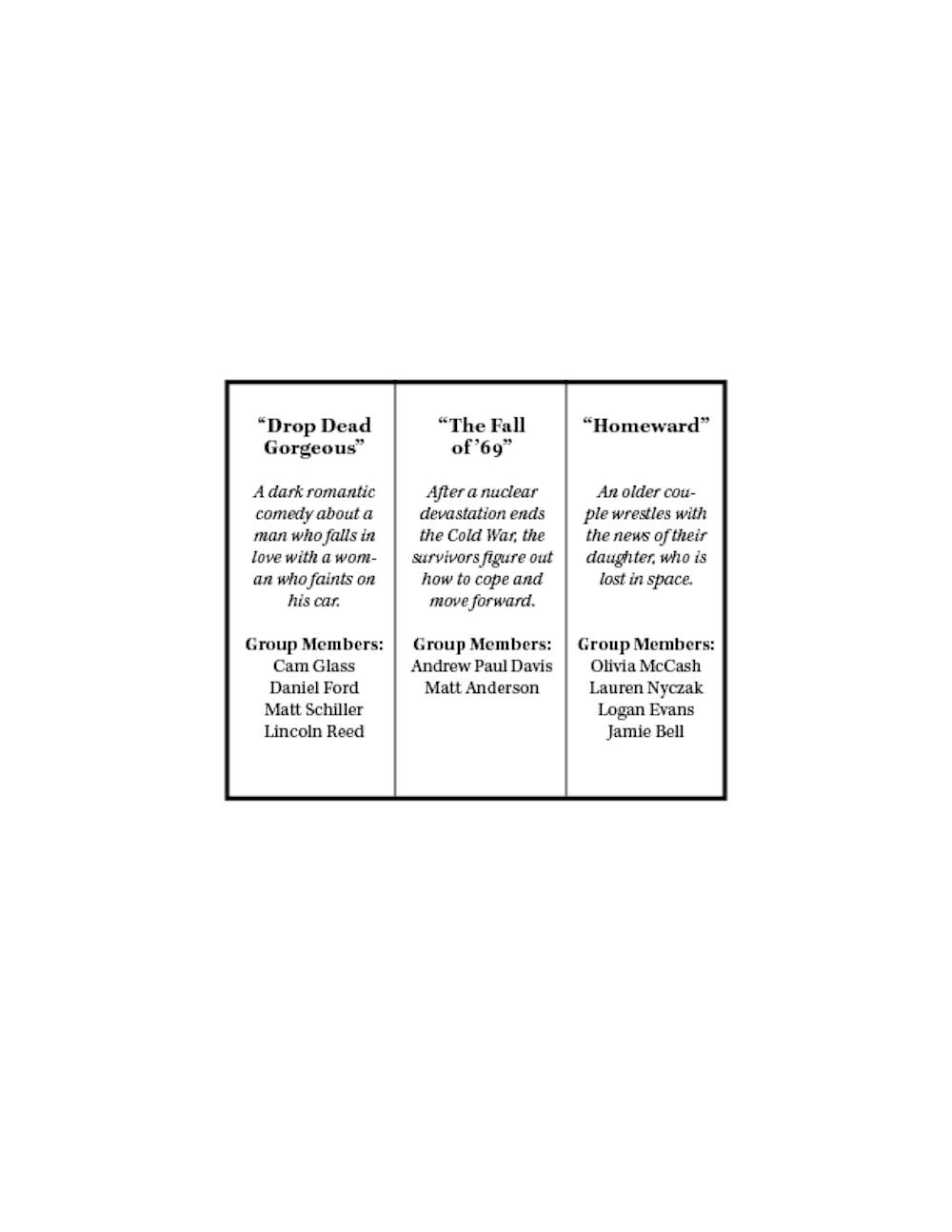
By Kelsea Denney | Contributor
What has been the most enjoyable part of this project so far? What has been the hardest?
Lincoln Reed: The most enjoyable part of this project has been working with talented people who are passionate about telling an entertaining story. The hardest part of this project has been managing the challenge of filming numerous locations in a short period of time.
Elyse Horb: We really have a lot of fun on set when we're filming . . . and it also feels really good to finish a shoot and know we did a good job, and now we get to go look at the footage and start editing it. The hardest part for us has been scheduling because our actors have busy schedules and so do we, so it's been tricky to find the days that work.
Olivia McCash: The most enjoyable part of this project has been seeing the story come to life. We spent a ton of time in pre-production, so watching everything unfold before our eyes has felt really rewarding. The hardest thing about this project has been pulling all of the right elements together. Finding the best people to play our lead roles, scouting locations, gathering props and building sets took a lot of time.
About how many hours do you anticipate this project taking overall?
Reed: I anticipate this project taking over 250 hours collectively for the entire group.
Horb: Okay, let me think of it as one week. I spent probably four hours during the week getting ready for the shoot, and then on Saturday we spent about eight hours of our day filming. But then out of that, Matt is now going to go back and spend probably the same amount of hours, at least, editing what we shot on Saturday.
McCash: I can't tell you how many hours this project will take specifically . . . but I expect each of us will have worked around 250 hours on it by the time it's done.

What is something you would want everyone to know about narrative filmmaking or your project process specifically?
Reed: I've found that two crucial elements to succeeding in narrative filmmaking are excellent organization and effective communication between group members, cast and crew.
Horb: I've been really thankful for underclassmen who have volunteered to help on projects . . . and that really helps our process during the shoot to know other people are there supporting. One thing that has made our process enjoyable is that Andrew, who wrote the script, spent months researching this era . . . so because of that research and all the knowledge he has, it's made it a lot easier to understand what direction to take the film in and how to design the set and do costumes. I think the more preparation work that you can do on any project, the production and the postproduction is a whole lot smoother.
McCash: I would want people to know that narrative filmmaking is such a team effort. It requires a lot of different skill sets, so every single person involved in the process is vital. Our process as a team has been incredibly collaborative. We have a constant stream of communication going every day, so even though we each have a specific role, we're able to give each other input at every point in the process.
Taylor's graduating film students take their final bows as they present "Drop Dead Gorgeous," "The Summer of '69" and "Homeward" May 13 at 7 p.m. in Rediger Chapel.





